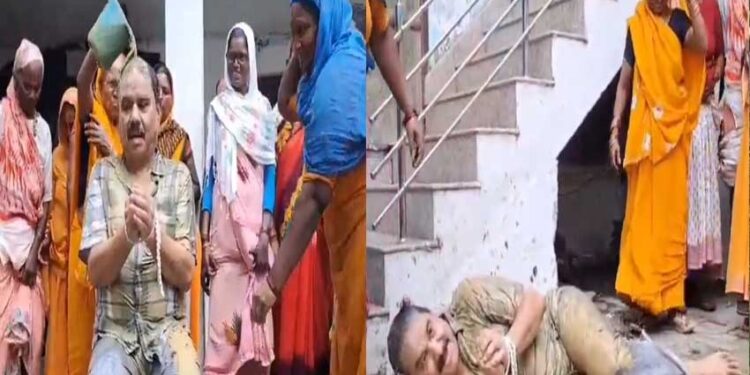Begum Qudsia Aizaz Rasul (English: Begum Qudsia Aizaz Rasul, born- 4 April, 1908; died- 1 August, 2001) was the only Muslim woman member of the Indian Constituent Assembly. After the dissolution of the Muslim League in India in 1950, she joined the Congress. She was elected to the Rajya Sabha in 1952 and then was a member of the Uttar Pradesh Legislative Assembly from 1969 to 1990. Along with this, Begum Aizaz Rasul was also the Minister of Social Welfare and Minorities between 1969 and 1971. In the year 2000, she was awarded the ‘Padma Bhushan’ for her contribution to social work.
Begum Aizaz Rasul was the daughter of Sir Zulfiqar Ali Khan of the royal family of Malerkotla and was married to Nawab Syed Aizaz Rasul, the talukdar of Oudh. Before joining the Constituent Assembly, she was a member of the Uttar Pradesh Legislative Council. She joined the Constituent Assembly on 14 July 1947 from the United Provinces. She later served as a member of the Rajya Sabha from 1952 to 1956. Begum Aizaz Rasul was one of the three women members of the Advisory Committee on Fundamental Rights.[1]
The Indian Constituent Assembly in its initial meetings had accepted the principle of reservation of seats for certain communities as recommended by the Sub-Committee on Minority Rights of the Assembly. But the announcement of Partition changed the nature of the debate. After Partition, the Assembly rejected the principle of separate electorates and reservation of seats for minorities. In fact, the political culture itself was becoming increasingly suspicious of any demand for any kind of reservation or special treatment. Begum Aizaz Rasul also feared that reservation of seats for the minority community ‘may keep alive the spirit of separatism and communalism’ and rejected the proposal for such reservation. But in doing so she envisaged the role of the majority community in ensuring that the minorities are not discriminated against and this remains relevant even today.
Begum Aizaz Rasul believed that minority communities should ‘depend on the well-being of the majority community’, but also that the majority should realise its duty not to discriminate against any minority and that the majority must instill a sense of confidence, goodwill and security in the minds of the minority communities.
Speaking on the Report of the Consultative Committee on Minorities, she said: “We as Muslims do not want any special privileges for ourselves but we also do not want to be discriminated against. That is why I say that as citizens of this great country we share the aspirations and the hopes of the people living here and at the same time expect that we should be treated with respect and justice”.
Similarly, on the apprehension that without reservation Muslims would not be able to enter the legislature and might be ignored politically, she remarked- “I do not envisage any political party in future ignoring Muslims and fielding its candidates in elections. Muslims form a major part of the population of this country. I do not think any political party can ever ignore them”. She also questioned the tendency to challenge a person’s loyalty to the country on the basis of religion and said- “I do not understand why loyalty and religion go together. I think that persons who work against the interests of the State and take part in subversive activities are not loyal, whether Hindus or Muslims or members of any other community. So far as that is the case, I think I am more loyal than many Hindus because many of them are involved in subversive activities, while I have my country in my heart”.[1]
Begum Aizaz Rasul believed that the Indian Constitution would not only eliminate discrimination against women but would actually ensure ‘equality of opportunity’ for women in the new republic. Like other women members, she argued that the Indian heritage historically recognized the equality of women. On accepting the Constitution she said: “The women of India are happy to carry forward their fair heritage of full equality with men in all spheres of life and activity. I say so because I am convinced that this is not a new concept which has been adopted for the purposes of this Constitution. It is an ideal which has long been cherished by India, though for some time social conditions had rendered it unfeasible. This Constitution reaffirms this ideal and assures that the rights of women will be fully respected in law in the Republic of India”. Begum Aizaz Rasul died on 1 August 2001 in Lucknow, Uttar Pradesh.










